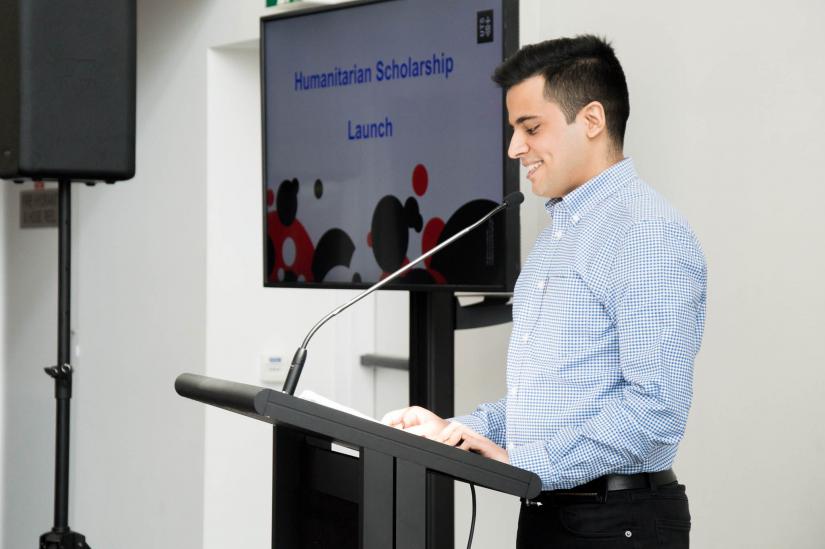In 2019, the scale of the global humanitarian crisis is staggering, with the numbers of forcibly displaced people around the world reaching unprecedented levels. The United Nations High Commission for Refugees (UNHCR) have estimated a record 70.8 million people have been forcibly displaced due to war, conflict and persecution. This figure includes 25.9 million registered refugees and 3.5 million asylum seekers of whom over 50 per cent are children and youth.
While the demand for survival, safety and security is paramount, the significant educational needs of displaced young people have been largely unaddressed. It is estimated that of the 7.4 million young people under UNHCR’s mandate, 68 per cent are enrolled in primary education, and of that, only two thirds (23 per cent) go on to secondary education. When it comes to higher education, figures get even worse. A devastating one per cent of refugee youth gain access to higher education, compared to 37 per cent globally. There is extensive research that highlights the experiences of refugee and asylum seekers and the complex challenges and barriers they face in resettlement, gaining meaningful employment and accessing and participating in formal education.
Australian schools and universities have seen steady growth in the numbers of students from refugee backgrounds. This growth aligns to both current global movements of ‘forced migrants’ and Australia’s humanitarian program. Department of Education data shows that despite making up only 0.3 per cent (4,184) of the Australian higher education student population in 2017, the number of students who hold permanent humanitarian visas (PHV) have more than doubled since 2012.

UTS Humanitarian Scholarship recipient Mohammad Sakhvidi.
Unfortunately, many displaced people already living in Australia, due to when and how they arrived, (referred to as the Legacy Caseload) are faced with even further challenges, rules and restrictions, including the exclusion of a pathway to permanent protection (instead they are granted temporary visas - temporary protection, safe haven enterprise visas or bridging visas). This proves to be problematic as, in the context of higher education in Australia, refugee and asylum-seeking young people on temporary visas are considered international students. Therefore, should they wish to pursue university study, they are required to pay full international tuition fees, which for the vast majority is unaffordable.
The UTS Humanitarian Access Program is UTS’s commitment to refugee and asylum seeker experiences and support for students granted temporary visas. The program acknowledges that educational disadvantage experienced by people with a refugee or asylum seeker background can sometimes impact their ability to achieve positive educational outcomes and provides assistance with fees and educational costs through the UTS Humanitarian Scholarship, transition and orientation support, refugee peer mentoring and academic-student mentoring, internship opportunities and as students transition into the workforce, graduate career support. The program is our acknowledgement that education is fundamental to supporting settlement process for people from refugee and asylum seeker backgrounds and our belief that refugees not only enrich university communities but also play an integral role in the social fabric of Australian society. Therefore, our investment in the educational achievement of refugees and asylum seekers, through the UTS Humanitarian Access Program, will not only benefit the student but the social and economic growth of the country.
Universities in Australia can and should do more. They have the capability and expertise to be agents for change in the humanitarian crisis. It is time that universities and other educational institutions rolled up their sleeves and worked towards a solution that ensures all refugees and asylum seekers have equitable access to, and meaningful participation in, education as a basic human right.

